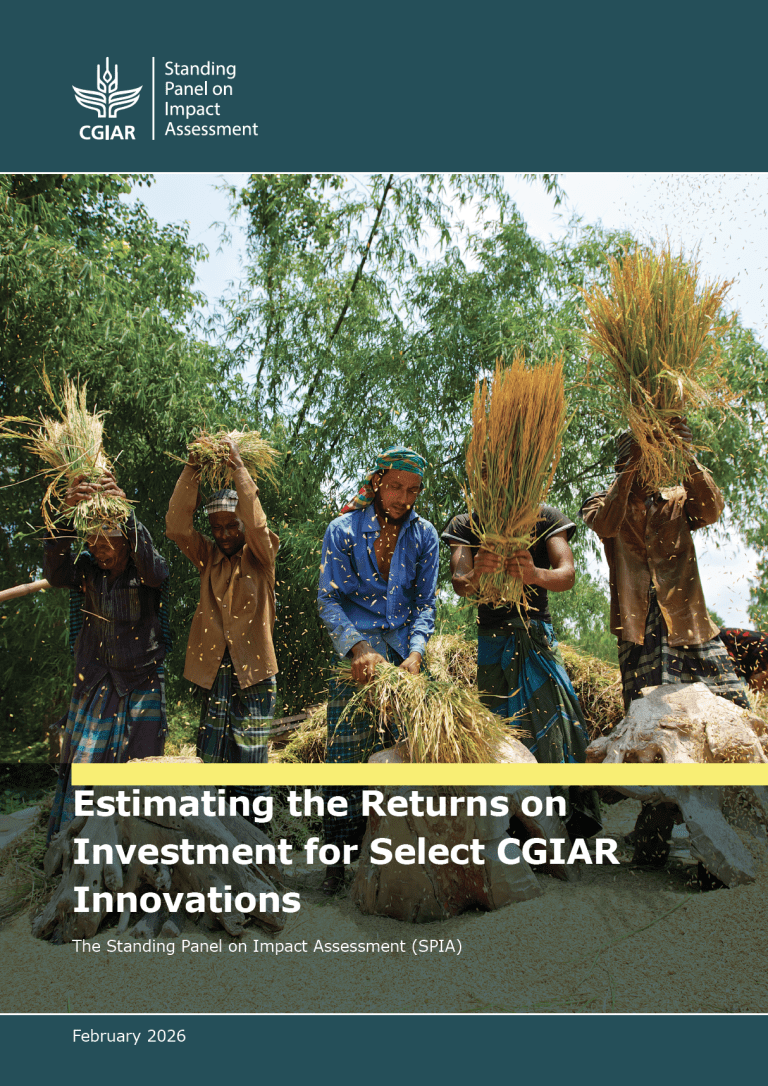Professor Robert Darko Osei: A Leading Voice in Development Economics Joins SPIA
Since the beginning of the second quarter of 2025, Professor Robert Darko Osei will be the 8th member of the SPIA Panel. He stands out as one of Ghana’s most notable economists, with a distinguished career spanning research, academia, and policy engagement. He is currently a Professor of Development Economics at the Institute of Statistical, Social and Economic Research (ISSER), University of Ghana, Legon and is the Dean for the School of Graduate Studies at the same University.
Prof. Osei’s academic journey began with a degree in Economics from the University of Ghana. He later pursued a Master of Science in Quantitative Development Economics at the University of Warwick, followed by a Ph.D. in Economics at the University of Nottingham, where his dissertation focused on aid, trade, and growth in Ghana. Further advancing his expertise, he completed an Executive Education Program at Harvard University in 2012.
Throughout his career, Prof. Robert Osei has been deeply involved in research initiatives across Ghana, Niger, Burkina Faso, and Mali. His work has contributed to numerous international journals and edited volumes, with key areas of focus including:
- Evaluative research on poverty and rural development,
- Structural transformation and its implications for poverty and inequality,
- The macro and microeconomic impacts of fiscal policy,
- Aid effectiveness and other critical themes in economic development.
With over 180 published works since 1998, Prof. Osei’s influence on developmental economics is both profound and far-reaching. His most cited publications include "Agricultural Decisions After Relaxing Credit and Risk Constraints" (Karlan, Osei, Osei-Akoto, Udry; The Quarterly Journal of Economics, 2014) and "A Multifaceted Program Causes Lasting Progress for the Very Poor: Evidence from Six Countries"(Banerjee et al.; Science, 2015).
He also plays a leadership role as the Country Director for the Ghana node of the African Centre of Excellence in Inequality Research (ACEIR). In addition, he is the co-chair of the Digital Agricultural Innovations and Services Initiative (DAISI), jointly managed by J-PAL (Massachusetts Institute of Technology) and the Center for Effective Global Action (University of California, Berkeley).
His contributions to national and international governance are notable. He currently serves as a Director on the board of Stanbic Bank Ghana Limited (appointed in March 2022), and he has previously served as a board member of the Ghana Statistical Service.
Prof. Osei is affiliated with the International Growth Centre (IGC), an institution that partners with policymakers in developing countries to promote inclusive and sustainable growth. Through the IGC, he has collaborated with fellow researchers on projects addressing private sector development, public-private linkages, investment, oil governance, public expenditure, and agriculture.
From this same center, his colleague Christopher Udry shared that Prof. Osei “(…) not only has had an enormous academic impact through his own published research, but he has also played a vital role in mentoring more junior scholars, especially faculty at the University of Ghana”, adding that “he has worked assiduously to connect new UG faculty with international scholarly networks, supported them in developing their own research programs, and protected them from the sometimes difficult bureaucratic environment”. Prof. Udry has himself benefit from Prof. Osei’s intellectual leadership while helping making data from the Ghana Socioeconomic Panel Survey, available.
This is also reflected in Prof. Osei’s regular contributions to academic and public discourse. In 2023, he participated in the 60th Anniversary Mini Research Conference of the School of Graduate Studies at the University of Ghana. There, he underscored the critical role of human potential and critical thinking in the age of rapid technological advancement. At the International Conference on Evaluation and Development (ICED), he contributed to the session “Measuring What We Mean: New Approaches to Resilience Measurement & Evaluation”, where he again highlighted the importance of critical thinking in higher education and the need to leverage innovation to adapt to a rapidly evolving world.
 A warm welcome to Professor Robert Darko Osei to the SPIA team.
A warm welcome to Professor Robert Darko Osei to the SPIA team.
His extensive expertise in development economics—particularly in areas such as poverty alleviation, structural transformation, and public policy evaluation—adds significant value to the panel’s work. His academic and policy-oriented trajectory will serve to complement the diverse experiences of the other panel members, contributing to a richer, more comprehensive approach to addressing today’s development challenges. His contributions are anticipated to greatly enhance the panel’s impact in the coming years.



